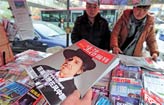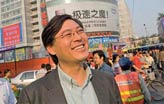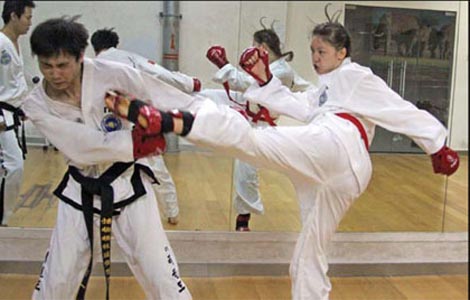Society
Book fair with an orange cover
Updated: 2011-09-09 14:28
By Yang Guang (China Daily European Weekly)
Dutch writers Kader Abdolah, Herman Koch, Margriet de Moor, J. Bernlef, and Adriaan van Dis held conversations with Mao Dun Literature Prize winner A Lai, avant-garde writer and director Zhu Wen, urban fiction writer Xu Zechen and cyber writer Murong Xuecun.
Topics of the conversations were proposed to create a natural connection between the writers involved and included: sustainability, the art of curiosity and the challenges of multicultural society.
Kader Abdolah, an Iranian emigre to the Netherlands who named himself after two of his friends executed in Iran, says he couldn't write his stories in his own language and therefore escaped and made a new writer of himself.
"My message to you and other Chinese writers is this: write from the bottom of your hearts," he said in a conversation with A Lai, a Chinese novelist of Tibetan ethnicity.
A Lai, whose Mao Dun Literature Prize-winning novel Red Poppies describes feudal Tibetan life before the liberation of Tibet in 1951, says in the 1960s, he used to be told what was appropriate to write, and that was the reason he didn't want to go to school.
"Now, of course, there's much greater freedom," he says.
During the past decade, about 100 Dutch books have been introduced into China. Even so, Dutch literary translator Shi Huiye says the number is small, in comparison with the 300 Dutch titles translated into German each year.
One of the factors hindering the introduction is the lack of qualified Dutch-Chinese translators. According to Radio Netherlands Worldwide, 90 percent of the introduced Dutch titles are translated "secondhand" from their English, German or French editions.
Robert van Gulik, with his Judge Dee mysteries, the protagonist he borrowed from the 18th century Chinese detective novel Celebrated Cases of Judge Dee, remains the best-known Dutch writer, although philosophers Erasmus and Spinoza, and historian Huizinga are increasingly popular among Chinese intellectuals.
According to Propper, much contemporary Chinese poetry was translated into Dutch in the 1980s. Poets Bei Dao and Duo Duo are well known to Dutch readers. The interest has increased since the 1990s. The Slow Fire is a quarterly journal devoted to Chinese literature.
"Geographically a small country, the Netherlands is in fact a big country for publishing and arts," says Lin Songyu, editor of translated literature with Guangzhou-based Flower City Press, who has been committed to introducing Dutch literature since 2005.
For Lin, both Chinese publishing professionals and ordinary readers have much to learn from the Netherlands.
"Chinese should reflect on our reading preferences," Lin says. "Too many utilitarian readings stand among the Chinese best selling list, while on the Dutch list there is more informative, serious reading matter."
Propper says during the book fair, about 60 Dutch titles were sold, mainly children's literature and literary nonfiction, and more will follow.
"Dutch publishers understand that for a real cultural exchange, to create interest in Chinese titles to be published in the Netherlands, is an important step," he says.
"Many of the 16 publishing houses present at the book fair have already decided to come back next year, which is an excellent result considering none of them ever came to Beijing before."
E-paper

Way over the moon
High inflation rockets mooncake prices out of orbit for mid-autumn festival
From death matches to child's play
Tomb raiders remain a menace
Kicking for joy
Specials

Singing success
Western musicians bring much-needed impetus to live performance industry

Salary bonanza for bosses
Top boss gets 8.78 million euros a year, far more than the State enterprise CEO with highest pay

Kicking for joy
Swedish college student represents China in Taekwondo championships
